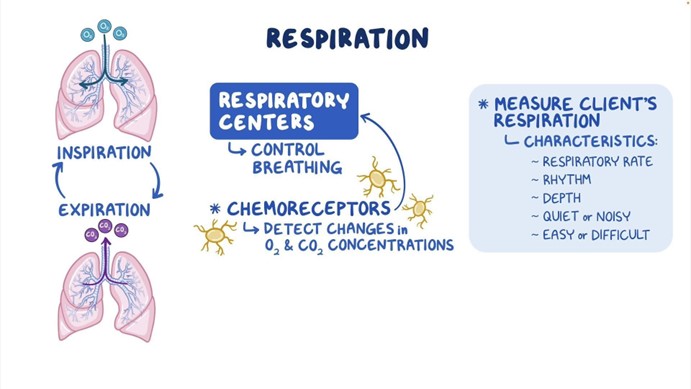A nurse is caring for a client who is experiencing hypovolemic shock. Which of the following blood products should the nurse anticipate administering to this client?
Packed RBCs
Cryoprecipitates
Albumin
Platelets
The Correct Answer is A
Choice A Reason: Packed RBCs are indicated for clients who have hypovolemic shock due to blood loss, as they increase the oxygen-carrying capacity of the blood and restore the blood volume.
Choice B Reason: Cryoprecipitates are indicated for clients who have hemophilia or von Willebrand disease, as they contain clotting factors that help stop bleeding.
Choice C Reason: Albumin is indicated for clients who have hypovolemic shock due to fluid loss, such as from burns or ascites, as it increases the plasma oncotic pressure and draws fluid into the vascular space.
Choice D Reason: Platelets are indicated for clients who have thrombocytopenia or platelet dysfunction, as they help prevent or control bleeding.
Nursing Test Bank
Naxlex Comprehensive Predictor Exams
Related Questions
Correct Answer is A
Explanation
Choice A Reason: Dobutamine is a positive inotropic agent that increases the contractility of the heart and improves cardiac output. This leads to increased renal perfusion and urine output, which reduces the fluid overload and edema associated with heart failure. Therefore, this choice is correct.
Choice B Reason: Dobutamine does not have a direct effect on blood glucose level. It may cause hyperglycemia as a side effect, but this is not an indication of its effectiveness. Therefore, this choice is incorrect.
Choice C Reason: Dobutamine may cause a slight decrease in blood pressure due to vasodilation, but this is not its main therapeutic effect. A significant decrease in blood pressure may indicate hypovolemia, hypotension, or shock, which are adverse effects of dobutamine. Therefore, this choice is incorrect.
Choice D Reason: Dobutamine also has a positive chronotropic effect, which means it increases the heart rate. However, this is not a desired outcome for a client with heart failure, as it increases the oxygen demand of the heart and may worsen the condition. Therefore, this choice is incorrect.
Correct Answer is B
Explanation
Choice A Reason: Equal amount of fluid drainage in each collection chamber is not a sign of proper chest tube function. The amount of fluid drainage depends on the type and extent of the client's injury or surgery, and may vary from one chamber to another.
Choice B Reason:Fluctuation of the fluid level in the water seal chamber(tidaling) indicates that the chest tube is functioning properly. This fluctuation corresponds with the client's respirations and shows that air or fluid is being effectively removed from the pleural space.
Choice C Reason:Continuous bubbling within the water seal chamber: Continuous bubbling in the water seal chamber indicates an air leak, which is not normal unless the client has a pneumothorax and air is being evacuated. Otherwise, it suggests a problem with the system.
Choice D Reason: Absence of fluid in the drainage tubing is not a sign of proper chest tube function. It may indicate that the chest tube is obstructed, kinked, or clamped, or that the suction is not working properly. The nurse should assess and troubleshoot the chest tube system.

Whether you are a student looking to ace your exams or a practicing nurse seeking to enhance your expertise , our nursing education contents will empower you with the confidence and competence to make a difference in the lives of patients and become a respected leader in the healthcare field.
Visit Naxlex, invest in your future and unlock endless possibilities with our unparalleled nursing education contents today
Report Wrong Answer on the Current Question
Do you disagree with the answer? If yes, what is your expected answer? Explain.
Kindly be descriptive with the issue you are facing.
